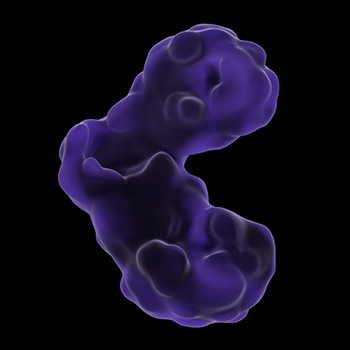Alpha Fetoprotein (AFP)
Harnessing Nature

Alpha Fetoprotein (AFP) is a human protein produced by the embryo during fetal development and serves two critical functions:
- Normalizes immune system responses so the mother’s immune cells don’t attack the embryo; and
- Picks up nutrients from the mother and delivers them to the embryo.
Symptoms of autoimmune diseases (Myasthenia Gravis, Inflammatory Bowel Disease (Crohn's/Colitis), Hashimoto Disease, Multiple Sclerosis, and 40+ Others) go into remission during pregnancy. This correlates very well with the rise and fall of AFP.
AFP enters maternal bloodstream and picks hydrophobic substances, needed by rapidly growing embryo. AFP circulates until it finds receptors which are present on all embryonic cells. It then binds to the receptor and is transported into cell where the payload is released. After birth, the production of AFP stops and the receptors disappear.
Most cancer cells and suppressor cells like embryonic cells express AFP receptors while healthy cells do not.
By attaching a chemotherapy payload to AFP we can selectively deliver toxins to cancer and suppressor cells bypassing normal cells.This results in increased efficacy and a significant reduction or no toxicity.
Pipeline
| Therapy | Indication | Partners | Discovery | Pre-Clinical | Phase I | Phase II |
|---|---|---|---|---|---|---|
|
ACT-101 (AFP) |
Immunomodulation | |||||
| Myasthenia Gravis (muscle weakness) |
|
|||||
| Inflammatory Bowel Disease (Crohn's/Colitis) |
|
|||||
| Hashimoto Disease, Multiple Sclerosis, 40+ Others |
|
|||||
|
ACT-901 (AFP + paclitaxel) |
Targeted Immuno-Oncology Solid and liquid tumors |
Collaboration University Health Network Princess Margaret Cancer Center |
|
|||
|
ACT-902 (AFP + thapsigargin) |
Targeted Immuno-Oncology Solid and liquid tumors |
Collaboration University Health Network |
|
|||
|
ACT-903 (AFP + linker + maytansine) |
Targeted Immuno-Oncology Solid and liquid tumors |
Collaboration Abzena |
|
|||